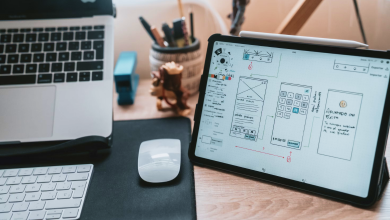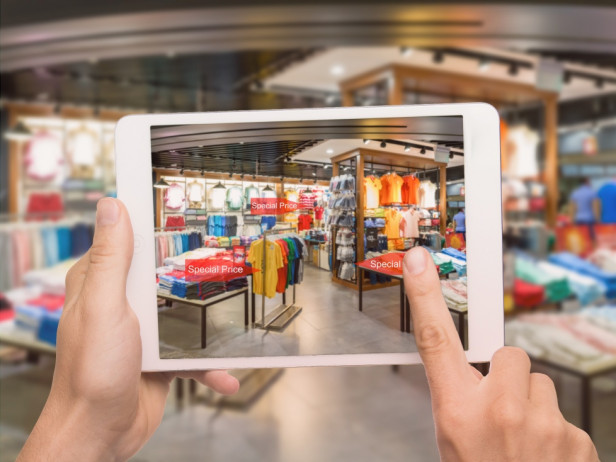Digitalization has transformed retail industries more than anyone ever anticipated. Nowadays, most companies operate online and enjoy a broader reach of global clients. The sales keep on increasing, and the estimated retail sales value is expected to hit a whopping $39,933.3 billion in 2030. However, retail stores have a role to play and should embrace technology to stay relevant and meet current demands.
What's retail digitalization? It's the employment of technology in retail industries to create unique innovations. It involves adopting modern business models to boost employee motivation and provide better value for customers. This isn't as easy as it seems, though! Retailing involves transferring goods to customers and may not impact your business like other industries if not done right.
Why embrace digital transformation for retail business?
Digitalization in retailing offers numerous gains to companies. It transforms service provision channels leading to improved customer services, sales, and profits. Retail digital transformation employs different tools, these include;
- Machine learning & analytics
- Artificial intelligence
- Unified commerce
Machine learning helps retailers to foretell customer behavior by collecting relevant data. You can use the tools to identify shopping patterns and adjust marketing techniques to match customers' preferences. On the other hand, you can employ AI technology to offer prompt responses to clients and improve their shopping experience. You can also use Unified Commerce to enhance data integrity and security by integrating it into one unified system.
What are the benefits of retail digitalization?
- Minimizes customer service burden
E-commerce automation ensures a seamless delivery of services which enhances the buyer experience. Customers can locate goods and services online, thus minimizing interactions. There's also the self-service aspect. This is attributed to the use of chatbots, which has lessened the reliance on customer service. What does this mean? Reduced customer demands and lower operational costs.
- A better understanding of buyer preferences
Digital retail transformation provides readily available data and analytics to the entire industry. You can use the information to gauge customer behavior and offer improved services. For instance, machine learning can help you understand the most preferred type of products and what customers are likely to buy together. You'll get many other useful details and can use the information to understand customer preferences and offer a better customer experience.

- More informed decisions
Digitalization in retail stores allows you to capture real-time data; this will help you understand what unlocks varying levels for businesses. You have access to information that helps make more informed decisions to benefit your business. For instance, accurate data will inform your marketing campaigns, allowing you to employ effective techniques to attract more customers. You also get to know what your clients are interested in, which eases decision-making.
- Wider customer reach
In the past, most business transactions relied on location and business proximity. However, this is changing, and most people shop online nowadays. You can now order goods from as far as the US, UK, Canada, and many other places globally, which translates to a broader reach of clients to retail companies.
What are the trends shaping retail digitalization?
Nowadays, companies are employing technology more than ever before. Digital technology continues to revolutionize the retail industry in myriad ways, and there are different trends worth mentioning.
- Use of AI to enhance customer experience
Most companies now employ AI, which has impacted how brands engage with clients. AI technology allows for improved interactions; online businesses can now offer automated services to customers thanks to the technology. Also, most companies now employ AI to help with demand forecasting and optimize product storage, retrieval, and delivery.
- AR & VR for simulated visualization
Augmented and virtual reality technology is now being used to enhance in-store experiences for customers. For instance, you can use AR-based apps to simulate the furniture experience in a customer's home. Once satisfied, the client can navigate the store's website to complete the purchase.
- Access to big data through cloud computing
Cloud computing enhances a retailer's capability to collect and access data across the globe. You can use the information to make more informed business decisions to improve sales and profits. That's not all; cloud computing allows you to make data-driven decisions. And this avoids costly blunders in business operations. Cloud storage is also safer and more secure than on-premises data storage, which improves customer trust in your brand.
- Use of voice-assisted shopping
Voice-assisted shopping is presumably the latest trend in retail digitalization. Customers can now use smart devices to search for products and detailed brand information or facilitate transactions. Although the technology isn't fully perfected, it will undoubtedly play a significant role in the coming years.
- Improved record keeping due to Blockchain technology
Data security is a critical aspect of any business, and Blockchain technology is handy in maintaining transparent and secure transactional records and other valuable data. Retail stores can now use the technology to track inventory and equipment location and minimize errors in their processes.
What are the best ways to eliminate failures with online platforms?
If you're designing a new e-commerce platform, the first step would be to consider the value that customers will derive from it. Therefore, keep customers' expectations in mind, you want to pack unique features into your e-Commerce platform and not make the most out of it.
Another way is to test all assumptions. Validation is vital when designing an e-commerce strategy. It helps determine whether the features match customers' needs and increase conversions and sales. Focus on delivery and employ the right technology to stay ahead of the competition.
For instance, use AI chatbots to forecast sales and offer personalized and all-time customer services. Also, focus on cybersecurity and use blockchain technology to safeguard valuable data and build brand trust.
Our Advices
If you are a company that deals with retail, then let's look at some basic tips from our professionals to improve your digitalization process.
1. Assess the potential for new tools to work. Before installing a new app or integrating a new platform, you need to do an analysis of how effectively the upgrade will affect your operations. Commercial offers can be very attractive, but always evaluate first the potential it will bring to your company.
2. Adapt your innovations to your customers. Agree that what works for other companies for another target audience may not work for yours. So always think first about the customer experience that your customers and your target audience will receive.
3. Data is an incentive, but not the key to commercial success. Keep this in mind when you analyze the data that comes into your company. Not all data can tell you exactly what will work with your audience. Do your analysis, but don't forget to rely on personal experience and reasoning.
The bottom line
Digitalization is a buzzword in the retail industry, and most companies now employ advanced software to stay relevant. It offers numerous gains to businesses, and you can digitize your retail store to reach a wide range of clients. There are also other technologies that you can employ to ease interactions, improve data security and enhance customer experience. Undoubtedly, digitalization offers multiple gains and is the way to go in the retail industry.



